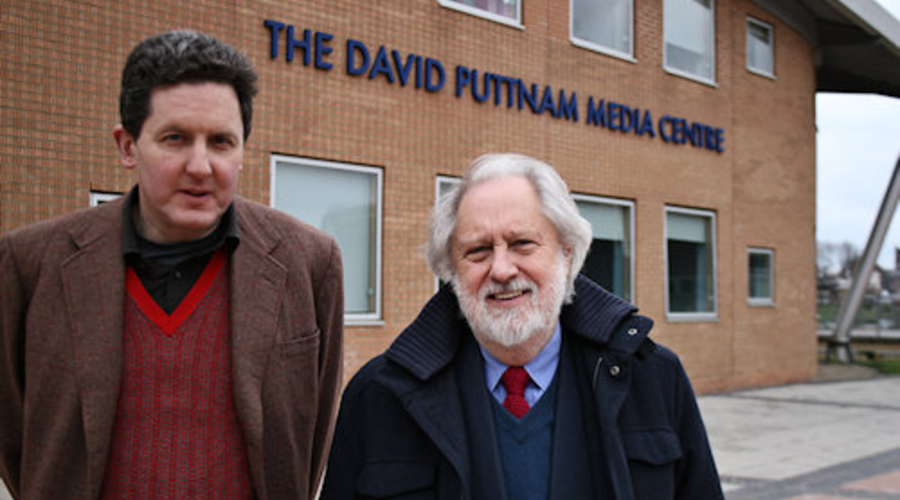Lord Puttnam defends Press Regulation and condemns post-Leveson ‘Hysteria’
Geoffrey MacNab (left) & Lord David Puttnam
One of the most influential figures in film and television defended his role in forcing the Government to implement new controls on press regulation in the wake of the Leveson inquiry into Press Standards.
Lord David Puttnam tabled an amendment to the Defamation Bill in the House of Lords which led to Prime Minister David Cameron accepting a deal to introduce a new system of press regulation through a Royal Charter.
And he dismissed as “ridiculous” the notion that investigative journalism of the sort portrayed in films like All the President's Men would be jeopardised by the new approach to press regulation.
At a Royal Television Society North East & The Border event at the University of Sunderland, Lord Puttnam said: “I have no doubt that Woodward and Bernstein would be able to break that story under the system brought in by the Royal Charter."
“There is a lot of hysteria around this. You don’t enjoy picking up the paper in the morning to find you are being accused of threatening freedom of the press. The amendment I put down in the House of Lords got a huge majority – but none of the papers mentioned that. We have allowed a lazy perception that politicians are on the take and that newspapers are necessarily right.”
The Oscar-winning producer behind films including The Killing Fields and Defence of the Realm – which both feature campaigning journalists in central roles – praised the work of broadcast journalists, who he said successfully manage to be fair and accurate whilst operating under regulation from Ofcom or the BBC Trust. He singled out American broadcaster Ed Murrow and the BBC’s Eddie Mair as examples of “quintessential” high-quality journalism.
The former deputy chairman of Channel 4, also spoke about the challenges and opportunities facing young people wanting to make careers in broadcasting and film. “In my day, you got your chance through documentaries or commercials. Or you got on to a graduate scheme. Now, YouTube and cheaper methods of production mean there are many more opportunities. Smart people take those opportunities any way they can. That¹s why I think the video game industry has struggled to produce talent for the film industry. In the end it¹s all about the quality of the narrative“
He said although regional television has been “decimated” over recent years, there would be new opportunities and markets opened up by the new generation of Local TV stations.
“The Government should not have allowed consolidation of ITV and the pursuit of super-profits. It all came down to the costs of transmitting and producing content for opt-outs within bigger regions. Only in England would a population of 300,000 people be seen as an uneconomic minority within a region. In America, they’d be fighting to get access to that size of market.”
The event, chaired by Geoffrey MacNab of Screen International, included a clip of Barry Norman’s weekly BBC film programme from 1981. It showed Lord Puttnam accurately predicting to a sceptical host that high quality film and television content would soon be available on demand via a telephone line.
GRAEME THOMPSON

